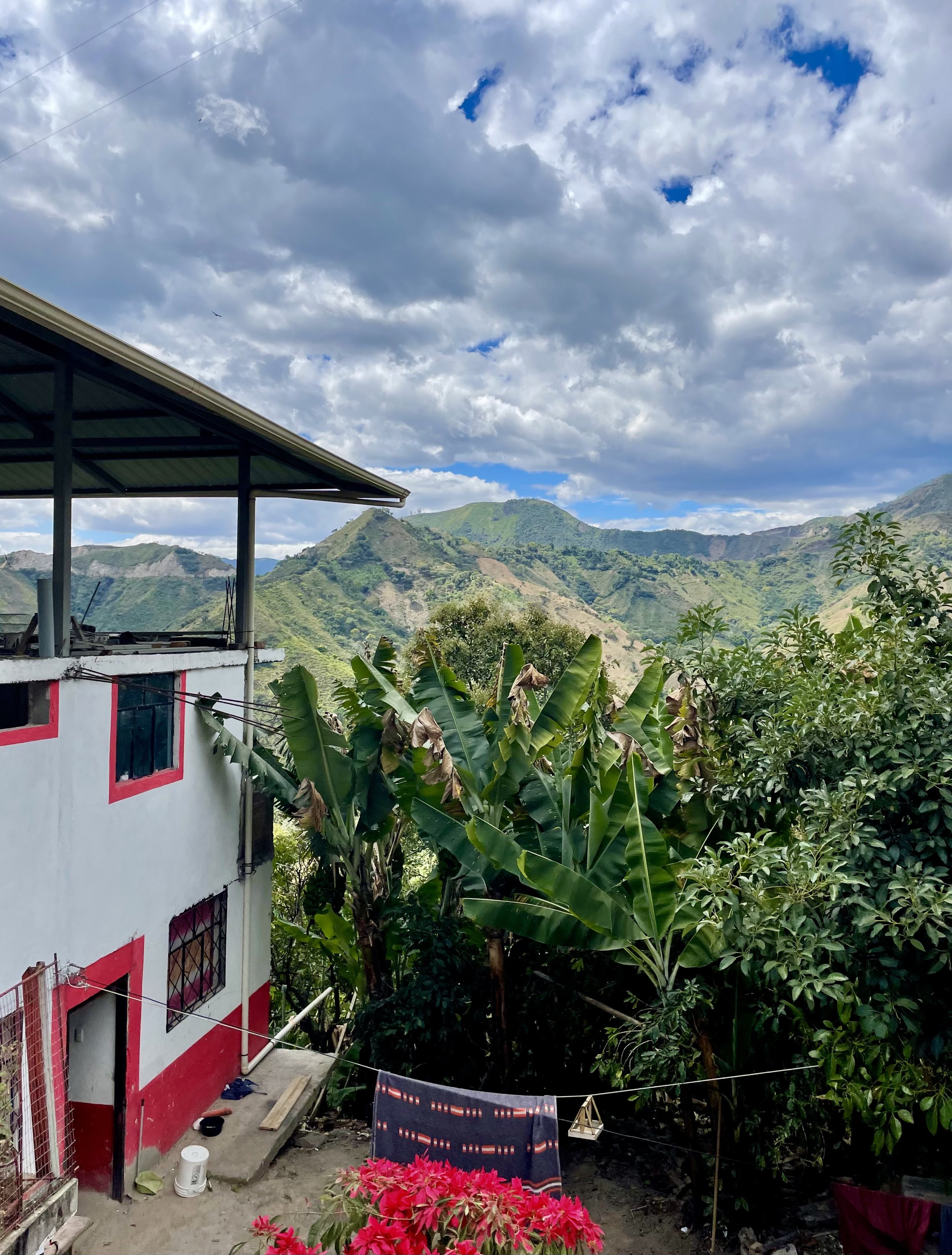Not My Story to Tell
Story and Photos by Alyssa Cruz
Design by Ally Parker
Journalism student Alyssa Cruz shares her experience completing an internship abroad and redefining her own ethics for journalism.
Journalism is one of those professions where you have to be all in. There is no clock-in and clock-out time when you’re a journalist. Some stories take years while others take hours. Sometimes a lifelong connection is created with a source, while other sources are merely a printed name for a quote in a sea of letters.
I knew I wanted to be a journalist when I was in high school. I always told everyone I wanted a job where I could travel, write and speak Spanish. Being a journalist seemed like a natural career path. More specifically, I have always had my sights set on becoming a foreign correspondent. The allure of meeting different people from diverse cultures while at the same time exploring parts of the globe was always appealing to me.
Last spring, an opportunity of a lifetime was presented to me: a summer internship in Ecuador. I had traveled a decent amount prior, including spending the previous summer abroad, but I had never worked abroad. Additionally, I had never solo traveled. Traveling by yourself instead of traveling with friends or family members is a totally different ball game.
Leading up to my departure, I had very few details about my internships. This includes but is not limited to where I was going to live, what I was going to be doing and how long I would be there. Minor details, of course. About two weeks before I left, I finally had a plane ticket.
When I landed in Quito, I was a bundle of nerves. I met my host family, who had only known they were going to be hosting me two weeks before and felt a little better after seeing how warm and welcoming they were.
My internship was with a multimedia organization called Comciencia, which is dedicated to spreading awareness about different environmental and political issues affecting Ecuador. The organization oversees producing new content for three separate accounts on social media, so every day was spent writing scripts, filming and editing.
The next six weeks were a blur of learning. I was learning everything from new videography skills to new Spanish vocabulary to new traditional foods. Every day I came home to my host family’s house and flopped on my bed to immediately fall asleep. Although my work schedule was pretty manageable with coming in the office around 9 a.m. and leaving around 4 p.m., I still found myself exhausted every afternoon. The everyday stress of the workday plus navigating the extremely complex transportation system aided my fatigue, but the main reason was speaking Spanish.
I grew up in a bilingual household, and I have been studying the language for years. But nothing compares to speaking Spanish all day every day with no breaks. I spoke Spanish at work, I spoke Spanish with my host family, and I spoke Spanish on the street, at the grocery store, in coffee shops and with my friends. I always say only multilingual people truly grasp the concept of your brain feeling tired after a long day of complete immersion.
After six weeks of working at the office in Quito and thoroughly enjoying it, it was time for me to embark on the second leg of my internship, which was spending two weeks in the province of Loja. Ecuador is divided into provinces, with Quito being in the province of Pichincha. Loja is the most southern providence and neighbor to Peru. In Loja, we specifically stayed in the town of Cariamanga.
The reason for our trip was because we were part of the communication team for the Infectious and Tropical Disease Institute. The Infectious and Tropical Disease Institute (ITDI) is a program at Ohio University that seeks to “improve the health status of underserved populations through sustainable and comprehensive research, service and educational initiatives related to infectious diseases,” according to their website.
ITDI brings students from OU as well as the Pontifical Universidad Católica de Ecuador to Loja to work on a variety of projects from health literacy to infant malnutrition to theater productions to preventing the spread of Chagas, a tropical disease that affects the rural communities of Cariamanga.
As a member of the communications team, my job was to accompany the different teams on their daily outings to do fieldwork. We took photos, shot video footage and conducted interviews with various participants.
Half of a journalist’s job is watching, and I was given the opportunity to be a fly on the wall while some amazing work was being done. Well checks were done for residents of a remote village where I met a community member who was 97 years old and still working every day. On a visit to a house in the mountains, the team was asking a man for his birth records, and he laughed when he realized that day he turned 63. He said he was so focused on taking care of his family that he hadn’t celebrated his birthday in years.
Another key aspect of journalism is having a secure view of what your role is. Although journalism can be used to provide a podium for injustices, it can also be viewed as exploitative. Shoving a camera in someone’s face when they are going through a tragedy or begging for a quote from a survivor of sexual violence are all reasons journalists get a warranted bad rap.
I always felt like I had a good sense of what ethics meant, but being in rural Ecuador on a trip whose entire purpose was helping an underprivileged community made it hard. Families of eight or nine members living in two-bedroom houses with no electricity, running water or even a floor. Old couples who had lived in the mountains their entire lives found out their beloved home was infested with chinchorros, or Chagas-plagued bugs, and needed to be fumigated. Kids who love school but cannot attend every day because it’s a two-hour-long hike on the side of a mountain to get there. Fourteen-year-old girls who had no access to sexual education and were already mothers.
All these cases broke my heart and made me want to do something. I was upset about the injustices, and angry there was not more time and effort being put in to solve them. Although the community members were upfront about the challenges in their lives, many of them were not angry. There was this attitude that things were the way they were, and there was no changing them.
This is not to say they did not want the best life for their kids or themselves, but rather, they were content with what life had to offer. What was most important for me to realize was they were not asking to be helped. So often in our culture, we are taught that we are somehow superior to others, and it is our duty to help. This fosters feelings of saviorism and heroism, making us feel good about ourselves.
I found myself craving that feeling, but it was completely unwarranted. My job there was to document the program and the participants. I refrained from taking photos of community members and avoided recording any sort of footage with a child in it. The bottom line was it was not my story to tell.
Looking back at my internship, I am overwhelmed by a feeling of gratitude. I learned so much about myself, and I am proud of myself for absorbing so much information from others. Although I am nowhere close to having all the answers, I employ all journalists to ask themselves why they are doing what they are doing and who they are doing it for. Find a story that is asking to be told rather than asking to tell a story.



